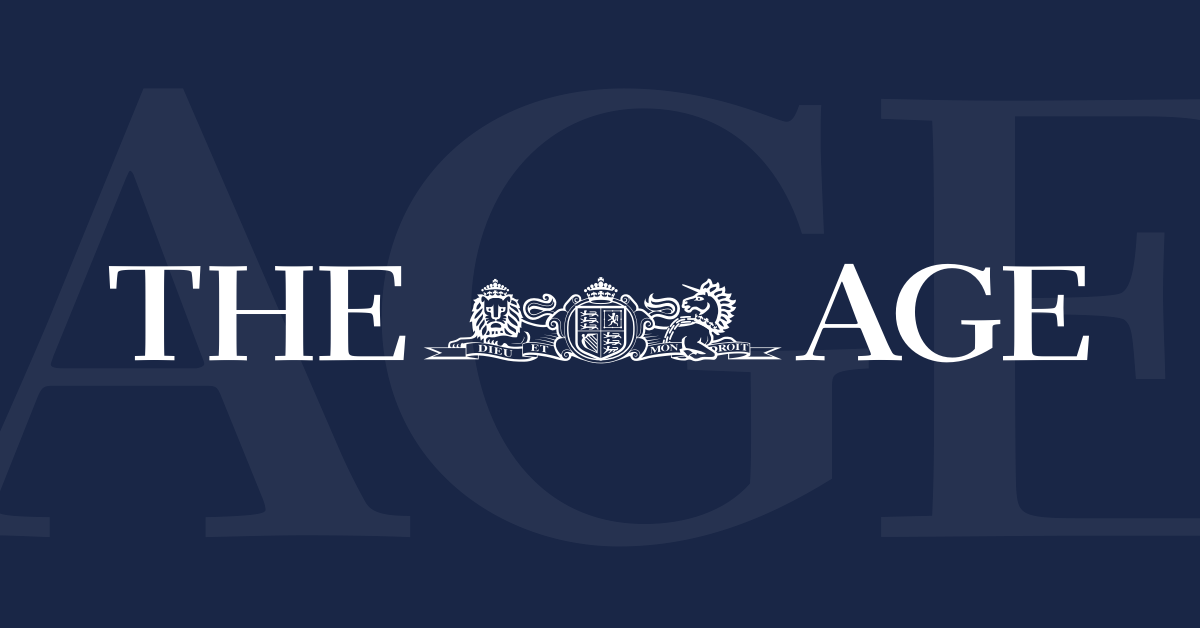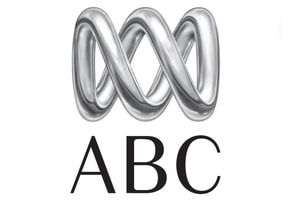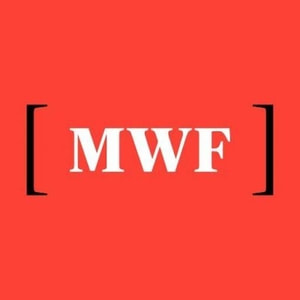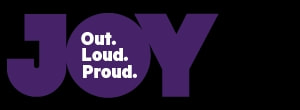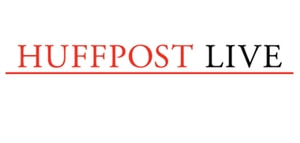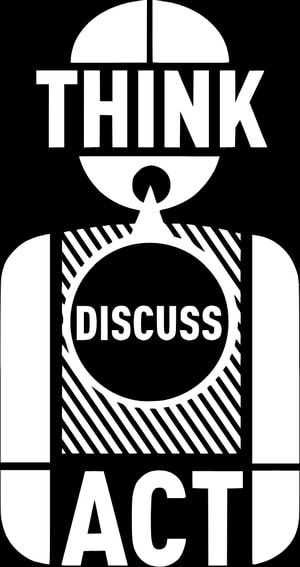Refund policy
We would love to be able to offer refunds on all occasions. Unfortunately, it's often surprisingly complicated at our end; aside from the admin, a cancellation often has implications for numbers, or gender balance, or preparation of materials, or our planning of the workshop. Also, since we use discounted ticket rounds to encourage you to book in early, which brings benefits for all, an excessively generous refund policy would undermine this system. So like other similar events - seminars, performances, courses, and most things requiring a booking - we need to put a value on the impact of cancellations. We also appreciate that things pop up, so we hope these policies provide a balance between your needs and ours.
Cancellations with 72 hours notice: Unless stated otherwise, if you let us know at least 72 hours prior to a workshop, we can refund what you've paid less a $25 cancellation fee per person per ticket.
Last minute cancellations (only applies to workshops or events over $50): With less the 72 hours' notice, including no-shows, we can't offer a refund, but can offer you the same event in future for half-price.
Moving your ticket to a future event: If it’s possible for us to do so, and with at least 14 days notice, we may be able to move your booking to a future event.
Policy around onselling tickets: We can't allow the onselling of tickets to others because of our application system, which is a really important part of our process to ensure folks are prepared for our events and workshops. Onselling would also mean we can't track who is at what event, which has safety implications. All tickets must be obtained by the individual via the ticketing forum listings.
Pre-recorded workshops: In the case of our pre-recorded workshops, we offer a 100% Money Back Guarantee for 30 days after purchase. So if you're not satisfied in any way, contact us for a full refund. After that period no refund is available (except where required by Australian consumer laws).
Socials, Workshop Two: about the community and The Practice Lab party exceptions: Because it's much easier for us to manage around cancellations, we're happy to offer a refund, less $15 cancellation fee, with just 24 hours notice.
We would love to be able to offer refunds on all occasions. Unfortunately, it's often surprisingly complicated at our end; aside from the admin, a cancellation often has implications for numbers, or gender balance, or preparation of materials, or our planning of the workshop. Also, since we use discounted ticket rounds to encourage you to book in early, which brings benefits for all, an excessively generous refund policy would undermine this system. So like other similar events - seminars, performances, courses, and most things requiring a booking - we need to put a value on the impact of cancellations. We also appreciate that things pop up, so we hope these policies provide a balance between your needs and ours.
Cancellations with 72 hours notice: Unless stated otherwise, if you let us know at least 72 hours prior to a workshop, we can refund what you've paid less a $25 cancellation fee per person per ticket.
Last minute cancellations (only applies to workshops or events over $50): With less the 72 hours' notice, including no-shows, we can't offer a refund, but can offer you the same event in future for half-price.
Moving your ticket to a future event: If it’s possible for us to do so, and with at least 14 days notice, we may be able to move your booking to a future event.
Policy around onselling tickets: We can't allow the onselling of tickets to others because of our application system, which is a really important part of our process to ensure folks are prepared for our events and workshops. Onselling would also mean we can't track who is at what event, which has safety implications. All tickets must be obtained by the individual via the ticketing forum listings.
Pre-recorded workshops: In the case of our pre-recorded workshops, we offer a 100% Money Back Guarantee for 30 days after purchase. So if you're not satisfied in any way, contact us for a full refund. After that period no refund is available (except where required by Australian consumer laws).
Socials, Workshop Two: about the community and The Practice Lab party exceptions: Because it's much easier for us to manage around cancellations, we're happy to offer a refund, less $15 cancellation fee, with just 24 hours notice.
Accessibility
Curious Creatures is committed to diversity and accessibility. Considerable lengths have been taken to adapt the material, format and presentation to suit a wider range of people. If you are aware of anything that might make our workshops inaccessible to you, please contact us, and we will happily see if we can find a way to make it inclusive.
We are ultimately seeking our own permanent venue for our workshops and events. In the meanwhile, while access considerations are important to us, it saddens us that there are effectively no venues that are both accessible and appropriately licensed and permitted for sexual content.
The two main venues we are using currently for workshops are:
- Take Care on Pitt Street, Brunswick
- Second Story Studios, Collingwood.
Take Care is a very old building, and the new operator has made significant steps towards making it wheelchair accessible. It is not a frictionless process, so please get in touch if one of the workshops we’re running at Take Care is of interest to you and you have accessibility needs.
Second Story Studios can be accessible depending on your level of need, and which rooms workshops are being run in. Woom or Engine rooms are on ground level however the Healing Temple, it is up two flights of stairs, and again we regret to say there is no ramp or elevator at this venue. There are toilets onsite which don’t have full access requirements.
We run occasional workshops at Ceres also, which has adequate access requirements including access toilets.
Because consent and communication is crucially important to what Curious Creatures does, and because the workshop content is delivered in English, you must have at least a moderate level of spoken English.
Curious Creatures is committed to diversity and accessibility. Considerable lengths have been taken to adapt the material, format and presentation to suit a wider range of people. If you are aware of anything that might make our workshops inaccessible to you, please contact us, and we will happily see if we can find a way to make it inclusive.
We are ultimately seeking our own permanent venue for our workshops and events. In the meanwhile, while access considerations are important to us, it saddens us that there are effectively no venues that are both accessible and appropriately licensed and permitted for sexual content.
The two main venues we are using currently for workshops are:
- Take Care on Pitt Street, Brunswick
- Second Story Studios, Collingwood.
Take Care is a very old building, and the new operator has made significant steps towards making it wheelchair accessible. It is not a frictionless process, so please get in touch if one of the workshops we’re running at Take Care is of interest to you and you have accessibility needs.
Second Story Studios can be accessible depending on your level of need, and which rooms workshops are being run in. Woom or Engine rooms are on ground level however the Healing Temple, it is up two flights of stairs, and again we regret to say there is no ramp or elevator at this venue. There are toilets onsite which don’t have full access requirements.
We run occasional workshops at Ceres also, which has adequate access requirements including access toilets.
Because consent and communication is crucially important to what Curious Creatures does, and because the workshop content is delivered in English, you must have at least a moderate level of spoken English.
Mission Statement
Curious Creatures is working towards:
A world that is sex-positive*, inclusive, and safe.
Communities that are educated and incredibly good at communication about consent.
Individuals that are empowered, liberated, and comfortably self-exploring.
*"Sex positive" means we are positive about our interests in consensual sex, and other people's interests. We might not like a particular kind of sex, or any kind of sex, but we are not negative or shaming about other's interests. Sex positivity exists as an alternative to a "sex negative" approach where individuals are in shame around their own sexuality, and critical of other expressions of sexuality.
Curious Creatures is working towards:
A world that is sex-positive*, inclusive, and safe.
Communities that are educated and incredibly good at communication about consent.
Individuals that are empowered, liberated, and comfortably self-exploring.
*"Sex positive" means we are positive about our interests in consensual sex, and other people's interests. We might not like a particular kind of sex, or any kind of sex, but we are not negative or shaming about other's interests. Sex positivity exists as an alternative to a "sex negative" approach where individuals are in shame around their own sexuality, and critical of other expressions of sexuality.
Commitment to gender equality and diversity
It is sometimes unclear how to best include gender issues in workshops; concepts that are otherwise simple enough to navigate can be difficult when applied to the public workshop environment. We are not pretending to have all the answers.
Sometimes there are no answers; some of these issues are unsolvable. As an example, a facilitator might sometimes be sitting between one group of people who, to be seen and included, need to have gender described as a fluid, non-existent, or fluctuating experience. On the other side, might be a group that need to have gender described as a fixed, rigid, and defined experience. It’s difficult to create environments (let alone describe gender) in a way that will make both of these groups of people feel simultaneously welcome.
Our primary commitment is to do our best, regardless. We will continue to try and create spaces where different folks can co-exist, and hopefully benefit from what the other brings. We will keep learning and listening and improving – and apologise for the times we get it wrong.
The main purpose of Curious Creatures' work is to contribute to how consent and sex-positivity plays out in our culture. To do this on a wider scale than just 'friends of friends' means including more diversity in workshops - which can feel a little odd, but can be a highly valuable experience for all.
Additional, specific commitments:
Why do we have separate gender ticket categories, and why do we use the specific language we use?
As outlined above, you can see that gender diversity and inclusing is exteremely important to us. We ourselves are a gender diverse bunch of folks, and if we were free to do things how we wanted, we wouldn’t have separate categories, because, frankly, your gender is none of our business and it doesn’t come into any of our content. Also, having no separate categories would allow us to avoid the impossible question of what language to use for those categories.
In the case of our hetero workshops, it’s easy to understand why we need separate ticket categories to keep the numbers balanced.
However, the uncomfortable truth about our mixed-gender workshops is that if we didn’t utilise tickets to balance genders, about 80% of participants would be from one of the men / male identities. We know from experience that this situation is not good for anyone.
We’ve experimented with varying ways of presenting the different gender ticket types over time but there were a two main issues that have have kept occurring on a regular basis:
Our solution to these specific re-occurring issues has been to change the Non Binary (NB) Ticket types to be more specific. With the new 'NB AFAB/AMAB ticket types we can have more tickets open to NB people and we have dramatically reduced the amount of people purchasing the wrong ticket types. This also means we’re able to moderate the balance in our workshops with a much clearer understanding.
So using ticket categories to maintain balance is essential. The question then becomes about how many categories to use, and what language we should use to describe them. For a lot of people this seems like a no-brainer, because they have language that works for them, and that makes sense to them. Our challenge is that we need language that is readily understood by all people, which unfortunately also means it’s going to look exclusionary to people that use different language. This is as true for straight, and / or cis people, as it is for a-gender, and / or trans, and or non-binary, and or other minority genders.
We have consulted many times with all groups of people, and the simple fact is that no perfect language exists. We acknowledge that our language is not perfect. We will keep on updating and improving it as we’ve been doing over the years, and we will welcome respectful suggestions if you can appreciate that we have turned ourselves inside out over this issue many times, and that we are facing challenges that most organisers and participants don’t have to contemplate.
If you think you’re not welcome because we don’t just use “woman” and “man”, that is not true, you are welcome here.
If you think you’re not welcome because our ticketing system potentially forces you to identify as something outside of your more accurate self-identity, that is also not true - particularly if you are from a minority gender identity, that is not true, you are welcome here.
Our dilemma would be easier if we were exclusively targeting just one community of people. We’re not doing that because of our commitement to inclusion and diversity as outlined above. But this does mean we have to venture into unusual territory at times, such as our ticket categories and language.
If, after reading this, it still doesn’t sit right with you, we support you in either opting out or respectfully approaching us with suggestions.
Thanks for reading, and for taking this stuff seriously with us.
It is sometimes unclear how to best include gender issues in workshops; concepts that are otherwise simple enough to navigate can be difficult when applied to the public workshop environment. We are not pretending to have all the answers.
Sometimes there are no answers; some of these issues are unsolvable. As an example, a facilitator might sometimes be sitting between one group of people who, to be seen and included, need to have gender described as a fluid, non-existent, or fluctuating experience. On the other side, might be a group that need to have gender described as a fixed, rigid, and defined experience. It’s difficult to create environments (let alone describe gender) in a way that will make both of these groups of people feel simultaneously welcome.
Our primary commitment is to do our best, regardless. We will continue to try and create spaces where different folks can co-exist, and hopefully benefit from what the other brings. We will keep learning and listening and improving – and apologise for the times we get it wrong.
The main purpose of Curious Creatures' work is to contribute to how consent and sex-positivity plays out in our culture. To do this on a wider scale than just 'friends of friends' means including more diversity in workshops - which can feel a little odd, but can be a highly valuable experience for all.
Additional, specific commitments:
- We commit to not teaching sexuality in a gender-binary way. This includes no mention of ‘masculine’ or ‘feminine’, and no prescribing of particular behaviours to particular genders.
- Not assuming either heteronormativity or queerness. We will articulate in workshop descriptions how people will be partnered for pair-work exercises, so that folks can make their own choices.
- In most workshops, including scope for people to clarify the gender pronouns they like to use in relation to themselves, at the start of the workshop. It may be appropriate to use our rank as facilitators to role-model gender diversity and create a positive atmosphere around same.
- In the unlikely event that a participant makes a negative gender-based comment in a workshop, we will do our best to respectfully address the comment and see if it can be rephrased. We will try not to leave minority groups, or any gender identity, to defend themselves.
- From time to time, we will facilitate group processes (conflict resolution) on gender and related issues.
- Ensure that paid staff have a thorough understanding of gender diversity and related issues.
- Attempt to create an atmosphere where participants feel drawn to exploring their gender identity, rather than feeling pressured or shamed into doing so.
- In general, not run workshops exclusively for any one gender (with exception*, below). We will instead attempt to show that we can all do this work together, even though that brings extra challenges – and opportunities! – relating to diversity.
- Where possible, run ‘hetero’ versions of workshops (where folks that identify as men are paired with folks that identify as women), ‘mixed’ workshops (where pairing happens randomly), and ‘couples’ versions (where folks, regardless of gender, work just with the person they arrived with), and they will be clearly labelled as such. *If demand exists, run bespoke lesbian and gay workshops.
- Attempt to bring gender diversity and fluidity into as many workshops as possible, so long as we're not pushing an agenda that folks didn’t sign up for.
- Do our best to balance comments made by participants that assume that “men are like x”, “women are like y”, “non-binary folks are like z”, etc. To the extent that we are able, make sure that diversity and fluidity is represented.
- We acknowledge that marginalised gender and sexual identities often carry a disproportionate psychological load resulting from the way they are regarded by the mainstream, and that minority groups often wind up providing leadership to the mainstream around gender issues. As sexuality educators, we acknowledge how much of our knowledge base comes from this work, and that we have a debt of gratitude. We will invest in further education and supervision on relevant issues.
- We acknowledge the incredible work that has been done by feminism, the men’s movement, and the queer movements, and how our own work is thanks to these pioneering movements.
- Not assume that a woman has a vagina, or that a man has a penis.
- When running workshops where it is specified that women will be paired with men for pair-work exercises, take each person’s identity as they identify it.
- We have a discount system in place for people that feel that their gender or sexual identity has marginalised them and impacted on their financial situation. Contact us to apply. (We regret that we are unable to extend this tithe system to other legitimate areas of marginalisation, such as accessibility, health, indigeneity, etc.).
Why do we have separate gender ticket categories, and why do we use the specific language we use?
As outlined above, you can see that gender diversity and inclusing is exteremely important to us. We ourselves are a gender diverse bunch of folks, and if we were free to do things how we wanted, we wouldn’t have separate categories, because, frankly, your gender is none of our business and it doesn’t come into any of our content. Also, having no separate categories would allow us to avoid the impossible question of what language to use for those categories.
In the case of our hetero workshops, it’s easy to understand why we need separate ticket categories to keep the numbers balanced.
However, the uncomfortable truth about our mixed-gender workshops is that if we didn’t utilise tickets to balance genders, about 80% of participants would be from one of the men / male identities. We know from experience that this situation is not good for anyone.
We’ve experimented with varying ways of presenting the different gender ticket types over time but there were a two main issues that have have kept occurring on a regular basis:
- The first is if one ticket type sold out people would revert to purchasing Non-Binary tickets even if they weren’t that gender. This would result in some complicated admin for us in having to follow up in the most sensitive way to check if they had made a mistake and to explain those tickets need to be kept for NB folks. We would then very often have to close the Non-Binary tickets prematurely to prevent this from happening.
- The second is that we discovered that the reverse was also happening: sometimes when the small amount of Non-Bindary tickets would sell out (or we’d have to close them for the above reason), Non-Binary people would be forced to buy Male or Female tickets.
Our solution to these specific re-occurring issues has been to change the Non Binary (NB) Ticket types to be more specific. With the new 'NB AFAB/AMAB ticket types we can have more tickets open to NB people and we have dramatically reduced the amount of people purchasing the wrong ticket types. This also means we’re able to moderate the balance in our workshops with a much clearer understanding.
So using ticket categories to maintain balance is essential. The question then becomes about how many categories to use, and what language we should use to describe them. For a lot of people this seems like a no-brainer, because they have language that works for them, and that makes sense to them. Our challenge is that we need language that is readily understood by all people, which unfortunately also means it’s going to look exclusionary to people that use different language. This is as true for straight, and / or cis people, as it is for a-gender, and / or trans, and or non-binary, and or other minority genders.
We have consulted many times with all groups of people, and the simple fact is that no perfect language exists. We acknowledge that our language is not perfect. We will keep on updating and improving it as we’ve been doing over the years, and we will welcome respectful suggestions if you can appreciate that we have turned ourselves inside out over this issue many times, and that we are facing challenges that most organisers and participants don’t have to contemplate.
If you think you’re not welcome because we don’t just use “woman” and “man”, that is not true, you are welcome here.
If you think you’re not welcome because our ticketing system potentially forces you to identify as something outside of your more accurate self-identity, that is also not true - particularly if you are from a minority gender identity, that is not true, you are welcome here.
Our dilemma would be easier if we were exclusively targeting just one community of people. We’re not doing that because of our commitement to inclusion and diversity as outlined above. But this does mean we have to venture into unusual territory at times, such as our ticket categories and language.
If, after reading this, it still doesn’t sit right with you, we support you in either opting out or respectfully approaching us with suggestions.
Thanks for reading, and for taking this stuff seriously with us.
Terms & Conditions
- This ticket is for me, for me only, and I have the appropriate forum permission level from Curious Creatures’ ticket application process. (Only exception: BYO partner workshops, where your ticket price includes your partner).
- I accept that the refund policy, which is detailed at: Curious Creatures policies for transparency and ethics
- I will not reveal the names or any personal details of any person in the workshop (except the facilitators).
- I have no reason to believe I am likely to fall into an altered state of consciousness (such as extremely strong moods, psychotic or schizophrenic states, numbness, trauma response) where I am unable to communicate and look after myself.
- I am able to take responsibility for saying ‘no’ to any activity, experience or exchange that is not right for me. I will put my knowledge of my body and my psychology ahead of anything I am asked to do, particularly if the workshop includes sexual content.
- I have free will, and if I need to leave the workshop at any time, I can. If I do, I will let the facilitator know I am leaving if it’s possible to do so, or get in touch with the facilitator/s afterwards to let them know why I left.
- I can understand complex instructions given in verbal English.
Policy: Play / intimacy with workshop participants
There are two main reasons why a workshop facilitator (or others in positions of power at Curious Creatures) need to be mindful about intimacy with workshop participants.
The first is that the facilitator has a duty of care to look out for the wellbeing and safety of workshop participants, and they can't do this if they're distracted by romantic or sexual interests. It will cloud their vision.
The second is that at least around the time of the workshop, a rank / power difference can exist between the facilitator and the participant that means that the participant may be less able to find their 'no' signals, and may agree to things that they ordinarily wouldn't. These are the same sorts of dynamics that exist between counsellors and clients, police and their subjects, etc.
It's a misuse of the position of power to use workshops to pick people up, so Curious Creatures have a strong policy that facilitators don't do that, and are also very mindful of interactions with participants during workshops (such as during demonstrations).
This policy is complicated in the world of sexuality, and particularly non-monogamy, where someone might be a facilitator in one context, but not in another. Or where circles of friends, peers, and partners overlap.
We ask both facilitators and participants to be mindful of this complexity. We expect facilitators to be aware that the power differential is influenced by things like age, previous experience, how recent a workshop was, and other factors.
Outside of the immediate workshop environment, the policy might be regarded as “Be extremely mindful of power dynamics with workshop participants, and at a minimum discuss this policy and its implications on consent”.

